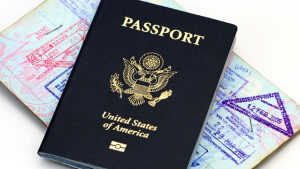 The IRS has announced it is implementing new procedures that link seriously delinquent tax debt to a taxpayer’s ability to apply for a new passport or request a renewal. The new rule is part of the Fixing America’s Surface Transportation Act or FAST. The FAST Act is a funding bill designed to find more tax revenue to pay for upgrading America’s roads, bridges and more. The tax debt-related provision requires the Department of Treasury to notify the State Department of individual taxpayers who owe a major tax debt if that taxpayer has not attempted to pay what they owe.
The IRS has announced it is implementing new procedures that link seriously delinquent tax debt to a taxpayer’s ability to apply for a new passport or request a renewal. The new rule is part of the Fixing America’s Surface Transportation Act or FAST. The FAST Act is a funding bill designed to find more tax revenue to pay for upgrading America’s roads, bridges and more. The tax debt-related provision requires the Department of Treasury to notify the State Department of individual taxpayers who owe a major tax debt if that taxpayer has not attempted to pay what they owe.
A taxpayer with seriously delinquent tax debts is defined as a person who owes the IRS more than $51,000 in back taxes, including penalties and interest. Taxpayers in the affected category should have already received a Notice of Federal Tax Lien from the IRS and have missed the deadline to challenge the notice, or enter into a payment agreement.
Under the law, if the State Department receives a notice about a seriously indebted taxpayer, it may only take action regarding the taxpayer’s passport application or deny a passport renewal. Importantly, the new law does not require the Department of Homeland Security or any other agency to confiscate the taxpayer’s passport, should they be traveling. Opponents of the new rule fear that it could lead to that action and, in time, the provision could be expanded to include taxpayers with less tax debt.
Affected taxpayers may avoid these passport issues if they take steps to resolve their tax liability either through an approved installment agreement, an accepted offer in compromise, a tax court settlement agreement, or if they are undergoing IRS due process. Taxpayers with a large back taxes amount, but who are not affected by the new rule include taxpayers who:
- are undergoing bankruptcy,
- have proven they have a qualifying financial hardship,
- live in a federally declared disaster area,
- qualify as someone who is a victim of tax-related identity theft, or
- have qualified for an innocent spouse election.
The IRS says it will postpone notifying the State Department about affected taxpayers who are serving in a military combat zone, so the individual’s passport renewal request is not subject to denial until they return to the United States.
Privacy advocates are concerned that the new rule allows too much information sharing between government agencies with different security controls over private individual information. They fear it increases the risk of identity theft and fraud. They also predict there may be long delays in passport renewals because of slow and sometimes inaccurate information-sharing practices between government agencies.
More IRS tools to collect back taxes from taxpayers are expected to emerge in the years ahead. The best protection is for affected taxpayers to work out an agreement to pay as much as they can as soon as they can to avoid greater costs that stretch beyond their pocketbooks.
If you need more information, please contact us at McRuer CPAs.
 is now
is now 
